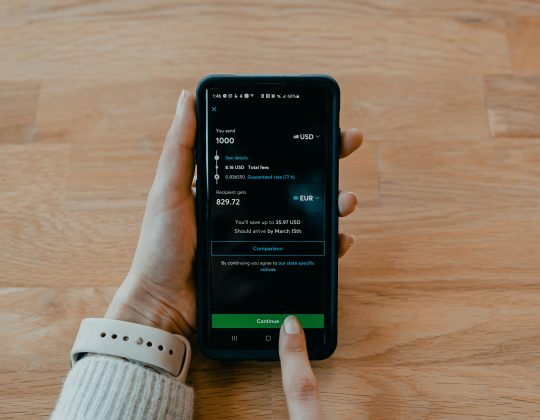Self-employment can be a liberating experience, but it also comes with a lot of responsibility. One of the most important aspects of being self-employed is managing your finances effectively. Without a steady paycheck, it can be challenging to keep track of your income and expenses, and it’s easy to fall into debt or overspend. However, with the right strategies, you can take control of your finances and ensure your business thrives.
The first step in managing your finances as a self-employed individual is to create a budget. This involves tracking your income and expenses, and setting a limit on how much you can spend in each category. By creating a budget, you can identify areas where you can cut back on expenses, and prioritize your spending to ensure you have enough money to cover your bills and save for the future.
Another important aspect of managing your finances as a self-employed individual is to separate your personal and business finances. This means opening a separate bank account for your business, and using it exclusively for business-related expenses. By keeping your finances separate, you can more easily track your income and expenses, and avoid mixing personal and business funds, which can lead to confusion and financial problems down the line.

- Separating Personal and Business Finances
- Tracking Income and Expenses
- Managing Taxes
- Investing in Insurance
- Professional Financial Advice
Separating Personal and Business Finances
When you are self-employed, it’s crucial to keep your personal and business finances separate. Mixing the two can make it difficult to keep track of your income and expenses, which can lead to confusion and potential tax issues. Here are some tips for separating your personal and business finances:
1. Open a Separate Bank Account
One of the easiest ways to separate your personal and business finances is to open a separate bank account for your business. This will allow you to keep track of your business income and expenses separately from your personal finances. It will also make it easier to calculate your business profits and losses for tax purposes.
2. Use Separate Credit Cards
In addition to a separate bank account, it’s a good idea to use separate credit cards for your personal and business expenses. This will help you keep track of your business expenses and make it easier to deduct them on your tax return. It will also make it easier to monitor your personal spending and avoid overspending on your business credit card.
3. Keep Detailed Records
When it comes to managing your finances as a self-employed individual, it’s essential to keep detailed records of your income and expenses. This includes keeping receipts, invoices, and other financial documents organized and up-to-date. By keeping detailed records, you’ll be able to easily track your business expenses and income, which will make it easier to file your taxes and manage your finances.
In conclusion, separating your personal and business finances is crucial for managing your finances as a self-employed individual. By opening a separate bank account, using separate credit cards, and keeping detailed records, you’ll be able to manage your finances more effectively and avoid potential tax issues.
Tracking Income and Expenses
One of the most important aspects of managing finances when self-employed is to keep track of income and expenses. This helps to understand the financial health of the business and make informed decisions.
Tracking Income
To track income, self-employed individuals should keep a record of all the money coming in. This includes payments from clients, sales of products or services, and any other sources of income. It’s important to keep receipts and invoices organized and up-to-date.
One effective way to track income is to use accounting software. This can help to automate the process and reduce the risk of errors. Some popular options include QuickBooks, Xero, and FreshBooks.
Tracking Expenses
Tracking expenses is just as important as tracking income. This includes all the money spent on business-related expenses such as office supplies, equipment, and travel expenses. Keeping receipts and invoices organized is crucial for accurate tracking.
Self-employed individuals can also use accounting software to track expenses. This can help to categorize expenses and make it easier to identify areas where costs can be reduced.
Separating Personal and Business Finances
It’s important to keep personal and business finances separate. This means having a separate bank account and credit card for business expenses. This makes it easier to track income and expenses and ensures that tax filings are accurate.
In summary, tracking income and expenses is essential for managing finances when self-employed. By keeping accurate records and using accounting software, self-employed individuals can make informed decisions and ensure the financial health of their business.
Managing Taxes
Managing taxes is a crucial aspect of managing finances when being self-employed. Unlike traditional employees, self-employed individuals are responsible for paying their own taxes. Failure to do so can result in penalties and legal issues. Here are some tips to help manage taxes effectively:
Keep Accurate Records
Keeping accurate records of all income and expenses is essential for managing taxes. This includes keeping receipts, invoices, and bank statements. It is also important to keep track of any business-related travel expenses, as they may be tax-deductible.
Understand Tax Deductions
Self-employed individuals are eligible for a variety of tax deductions. This includes deductions for home office expenses, equipment purchases, and business-related travel expenses. It is important to understand what deductions are available and keep accurate records to claim them when filing taxes.
Set Aside Money for Taxes
Self-employed individuals are responsible for paying estimated taxes on a quarterly basis. It is important to set aside money each month to cover these taxes. This can be done by setting up a separate bank account or using accounting software to track income and expenses.
Hire a Tax Professional
Managing taxes can be complicated, especially for those who are new to self-employment. Hiring a tax professional can help ensure that taxes are filed correctly and all available deductions are claimed. It is important to find a tax professional who is knowledgeable about self-employment taxes.
By following these tips, self-employed individuals can effectively manage their taxes and avoid legal issues. Keeping accurate records, understanding tax deductions, setting aside money for taxes, and hiring a tax professional are all important steps to take when managing finances as a self-employed individual.
Investing in Insurance
When it comes to managing finances as a self-employed individual, investing in insurance is a crucial step to ensure financial stability. Insurance can offer protection against unexpected events that could otherwise lead to financial ruin.
One of the most important types of insurance for self-employed individuals is health insurance. Without the safety net of an employer-sponsored health plan, self-employed individuals must purchase their own health insurance. This can be a daunting task, but it is important to prioritize investing in quality health insurance to avoid potential medical debt.
In addition to health insurance, self-employed individuals should also consider investing in disability insurance. Disability insurance provides income replacement in the event that you become unable to work due to an injury or illness. This type of insurance can be especially important for those who rely solely on their own income for financial support.
Finally, liability insurance is another important investment for self-employed individuals. Liability insurance can protect against potential lawsuits or damages that may arise from your business operations. This type of insurance can offer peace of mind and financial protection in the event of an unexpected legal issue.
Overall, investing in insurance is an essential step in managing finances as a self-employed individual. By prioritizing health insurance, disability insurance, and liability insurance, self-employed individuals can protect themselves and their businesses from potential financial ruin.

Seeking Professional Financial Advice
When managing finances as a self-employed individual, seeking professional financial advice can be a wise decision. A financial advisor can provide valuable insights and guidance on various financial matters, such as tax planning, retirement planning, and investment strategies.
One of the benefits of working with a financial advisor is that they can help you navigate the complex tax laws and regulations that apply to self-employed individuals. They can assist you in identifying tax deductions and credits that you may be eligible for, which can help reduce your tax liability.
In addition, a financial advisor can help you develop a retirement plan that is tailored to your specific needs and goals. They can recommend retirement savings vehicles, such as IRAs and 401(k)s, and help you determine how much you need to save to achieve your retirement goals.
When it comes to investing, a financial advisor can provide valuable insights and recommendations on investment strategies that align with your risk tolerance and financial goals. They can also help you diversify your portfolio to minimize risk and maximize returns.
Overall, seeking professional financial advice can be a valuable investment in your financial future. By working with a financial advisor, you can gain the knowledge and guidance you need to make informed financial decisions and achieve your long-term financial goals.








